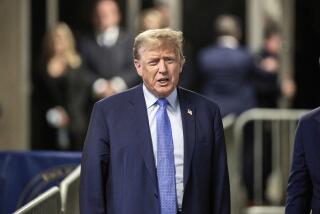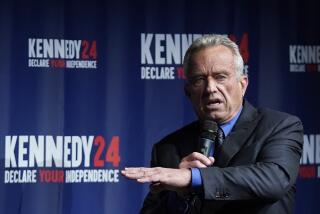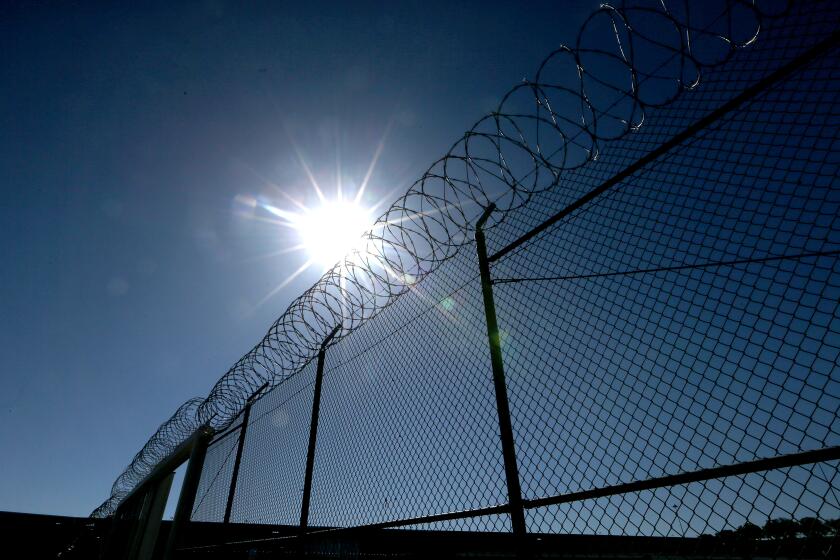Senate Panel Looking at Administration Claims
After releasing its devastating report on Iraq intelligence failures, the Senate Intelligence Committee is already forging ahead on a much more politically sensitive follow-up investigation that will examine prewar statements by President Bush and other administration officials.
Members of the Senate panel have been asked by the committee chairman, Sen. Pat Roberts (R-Kan.), to submit lists of claims made by White House officials and other policymakers that would be scrutinized to determine whether they were exaggerated or unsupported by intelligence assessments available before the invasion of Iraq.
As part of the second phase of its probe, the committee has collected dozens of documents and conducted detailed interviews about a controversial intelligence unit at the Pentagon, according to congressional sources familiar with the investigation. The unit had challenged CIA conclusions that Iraq was not collaborating with Al Qaeda.
In addition, Senate investigators are beginning to compile evidence for a probe of the role the Iraqi National Congress played in building the case for war. Ahmad Chalabi, the former Iraqi exile leader and INC founder, had close ties to some senior Bush administration officials before the relationship soured amid recent allegations that Chalabi had leaked American secrets to Iran. The INC has also been accused of funneling flawed intelligence to the United States as part of a decadelong campaign to oust Saddam Hussein.
Each of these areas of inquiry carries the possibility of embarrassing disclosures for the White House, which was left largely unscathed by the Senate report delivered Friday. For that reason, the second phase of the investigation is already a subject of deep political tension on the Senate Intelligence Committee, with Democrats pressing to complete at least portions of it before the November election, and Republicans indicating that is unlikely to happen.
Friday’s report focused primarily on the performance of the CIA and other intelligence agencies in their prewar assessments of Iraq. The committee concluded that almost all of those prewar judgments were “either overstated or were not supported by the underlying intelligence reporting.”
The committee now confronts the thorny prospect of applying the same scrutiny to assertions that emanated from the White House. Republicans had previously argued that such an exercise was beyond the jurisdiction of the committee but agreed to assess administration statements in a compromise.
Some members have already submitted lists of policymakers’ claims, but most -- including the ranking Democrat on the committee, Sen. John D. “Jay” Rockefeller IV (D-W. Va.) -- have been waiting for the release of the first phase of the report. Congressional officials declined to discuss the contents of the lists, but in written attachments to Friday’s report, Democrats highlighted a number of administration quotes they said exaggerated Iraq’s weapons capabilities and ties to Al Qaeda.
One quotes Bush’s radio address from Sept. 28, 2002, in which he said, “Each passing day could be the one on which the Iraqi regime gives anthrax or VX nerve gas or, someday, a nuclear weapon to a terrorist group.” Another quotes Vice President Dick Cheney saying in August 2002, “We know that Saddam has resumed his efforts to acquire nuclear weapons.”
The committee may find it difficult to determine whether, and to what extent, such remarks were unfounded, because intelligence reports that officials were getting at the time turned out to be so far off-base.
The more problematic area for the White House may be in the way it portrayed Iraq’s relationship to Al Qaeda. In December 2001, Cheney said “it’s been pretty well confirmed” that lead Sept. 11 hijacker Mohamed Atta had met with an Iraqi agent in Prague several months before the attacks. However, U.S. intelligence never confirmed the meeting and now believes it never took place.
A congressional official familiar with the investigation said on condition of anonymity that evaluating administration claims “should be the quickest of all” the remaining pieces to be completed. “We know what the intelligence said, we know what people said. Now we can compare the two,” the official said.
But he said the panel had not worked out how it would reach verdicts and that other aspects of the inquiry remained unresolved, including whether to question White House officials.
Another key front for investigators is the role of an analytic unit set up at the Pentagon by Douglas J. Feith, undersecretary of Defense for policy. Feith has defended the work of the unit, saying it was intended to help policymakers better understand state sponsorship of terrorist groups. But in supplementary documents attached to last week’s Senate report, Democrats portrayed it as an effort to undermine the CIA.
One of the unit’s analysts told Defense Secretary Donald H. Rumsfeld and other senior Pentagon officials in 2002 that the CIA’s views on Iraq’s ties to Al Qaeda “ought to be ignored,” according to a paper attached to the Senate report by Rockefeller and two other Democrats.
The Pentagon unit produced a presentation that argued the CIA was underestimating Iraq’s relationship with Al Qaeda, the paper said. And when the unit failed to influence the CIA’s judgments, the group “simply took their case directly to the White House.”
The CIA’s conclusion that Iraq had a history of contacts with Al Qaeda -- but that there was no evidence of collaboration -- has since been endorsed by the commission investigating the Sept. 11 attacks and the Senate Intelligence Committee.
Rockefeller on Friday questioned whether Feith’s office was involved in illegal intelligence activities. Rockefeller said the committee was examining Feith’s “relationship with the INC and Chalabi,” and seeking to determine whether he was “running a private intelligence [operation], which is not lawful.”
Rockefeller appeared to be referring to a 2002 meeting between two Feith aides and Manucher Ghorbanifar, an Iranian businessman who was involved in the Iran-Contra scandal.
Rumsfeld has confirmed the meeting, saying officials had held discussions with Ghorbanifar, who apparently was offering information on Iran, but that the talks “went nowhere.”
More to Read
Get the L.A. Times Politics newsletter
Deeply reported insights into legislation, politics and policy from Sacramento, Washington and beyond. In your inbox three times per week.
You may occasionally receive promotional content from the Los Angeles Times.






